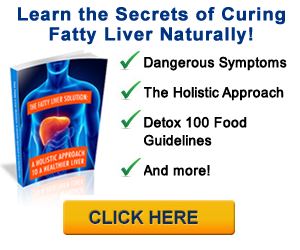Daily Habits That Can Harm Your Liver.
Are you aware of the daily habits that might be harming your liver? Your liver is an essential organ that plays a vital role in filtering toxins and aiding digestion. However, certain everyday activities can unknowingly put strain on this important organ. From excessive alcohol consumption to a diet high in processed foods, these habits can take a toll on your liver’s health. In this article, we will explore some of these common habits and provide you with insights on how to make healthier choices to protect your liver.
Excessive Alcohol Consumption
Excessive alcohol consumption can have severe repercussions on your liver health. Regular heavy drinking and binge drinking are two common types of excessive alcohol consumption that can lead to liver damage. Regular heavy drinking refers to consuming large amounts of alcohol on a daily or near-daily basis. Binge drinking, on the other hand, involves consuming a significant amount of alcohol in a short period, typically within two hours. Both types of excessive alcohol consumption can cause inflammation and scarring of the liver, which can eventually lead to liver diseases such as alcoholic hepatitis and cirrhosis.
Mixing alcohol with medications is another harmful practice that can negatively impact your liver. Many medications, including over-the-counter ones, have hepatotoxic effects, meaning they can damage liver cells. When alcohol is combined with these medications, the risk of liver damage increases substantially. It is essential to read medication labels carefully and consult your healthcare provider or pharmacist to ensure there are no harmful interactions with alcohol.
Unhealthy Diets
Your diet plays a significant role in maintaining liver health. Consuming high amounts of processed foods can be detrimental to your liver. These foods often contain high levels of unhealthy fats, added sugars, and artificial additives. The excessive intake of processed foods can lead to weight gain, obesity, and non-alcoholic fatty liver disease (NAFLD). NAFLD is a condition characterized by the accumulation of fat in the liver, which can progress to more severe stages such as non-alcoholic steatohepatitis (NASH) and eventually liver cirrhosis.
Excessive consumption of added sugars is also harmful to your liver. When you consume large amounts of added sugars from sources like sugary beverages, sweets, and processed snacks, your liver is unable to process them efficiently. This can result in the liver converting excess sugars into fat, leading to the development of fatty liver disease.
Additionally, eating excessive amounts of fatty foods, such as fried foods and red meat, can contribute to liver damage. These foods are typically high in saturated and trans fats, which can promote inflammation and increase the risk of developing liver diseases.
Smoking
Smoking is not only harmful to your lungs and heart but also poses a significant risk to your liver health. When you smoke, the toxins present in tobacco directly enter your bloodstream and travel to the liver, where they can cause damage. The liver plays a crucial role in filtering toxins from the body, but it can become overwhelmed by the continuous exposure to tobacco toxins. This can lead to inflammation and scarring, impairing liver function.
Furthermore, smoking increases the risk of developing liver cancer. Studies have shown that smokers are more likely to develop hepatocellular carcinoma (HCC), the most common type of liver cancer. The harmful chemicals in tobacco can directly affect liver cells and increase the likelihood of cancerous cell growth.
Overuse of Medications
Overusing medications, both over-the-counter and prescription, can have detrimental effects on your liver. Nonsteroidal anti-inflammatory drugs (NSAIDs) like ibuprofen and acetaminophen, when taken in excessive amounts or for prolonged periods, can cause liver damage. These medications are commonly used for pain relief, but misuse or overuse can lead to hepatotoxicity, a condition where liver cells are damaged or destroyed.
Some prescription medications, such as certain antibiotics and cholesterol-lowering drugs, also have hepatotoxic effects. It is essential to follow the prescribed dosage and duration of use for these medications to minimize the risk of liver damage. If you have any concerns about the potential hepatotoxicity of your medications, consult your healthcare provider.
Lack of Exercise
Regular exercise is crucial for maintaining overall health, including liver health. A sedentary lifestyle, characterized by a lack of physical activity, can contribute to obesity, which is strongly associated with liver diseases. When you lead a sedentary lifestyle, you are more likely to gain excess weight, especially around the abdomen. This excess weight leads to fat accumulation in the liver, increasing the risk of fatty liver disease.
Moreover, a sedentary lifestyle can contribute to the development of insulin resistance, a condition in which your cells become less responsive to insulin. Insulin resistance is a key factor in the development of metabolic syndrome, a cluster of conditions that increase the risk of liver diseases such as NAFLD.
Engaging in regular physical activity, such as aerobic exercises and strength training, can help reduce liver fat, improve insulin sensitivity, and promote overall liver health.
Insufficient Hydration
Staying hydrated is essential for maintaining optimal liver function. When you are dehydrated, your liver has to work harder to perform its detoxification functions. Dehydration can hinder the liver’s ability to flush out toxins from the body, potentially leading to a buildup of harmful substances.
In addition to impairing liver function, insufficient hydration can also contribute to the development of kidney stones. These stones can block the bile ducts, leading to a backup of bile and potentially causing liver damage.
To ensure proper hydration, aim to drink an adequate amount of water throughout the day, especially during periods of increased physical activity or in hot weather.
Unsafe Drug Use
Unsafe drug use, particularly injection drug use, poses a significant risk to your liver health. When drugs are injected intravenously, they directly enter the bloodstream, bypassing the liver’s natural filtration process. This puts a tremendous strain on the liver, as it is exposed to high concentrations of harmful substances.
Sharing needles during drug use can lead to infections such as hepatitis B and C. These viral infections specifically target the liver, causing inflammation and long-term damage. Hepatitis B and C are leading causes of chronic liver diseases, including liver cirrhosis and liver cancer. If you are using drugs, it is crucial to seek help and support to reduce the risk of hepatitis infections and liver damage.
Exposure to Environmental Toxins
Exposure to certain environmental toxins can have detrimental effects on your liver. Industrial chemicals, such as solvents, heavy metals, and pesticides, can be harmful to the liver if encountered in high amounts or over prolonged periods. These toxins can enter the body through inhalation, ingestion, or skin contact and can accumulate in the liver, leading to liver damage and dysfunction.
To minimize exposure to environmental toxins, be cautious when handling or working with chemicals, use protective equipment when necessary, and follow safety guidelines provided by the manufacturers. If you suspect exposure to industrial chemicals or pesticides, seek medical advice to assess the potential impact on your liver health.
Ignoring Hepatitis Infections
Chronic hepatitis B or C infection is a significant risk factor for liver damage. These viral infections can lead to liver inflammation and, if left untreated, progress to chronic liver diseases such as cirrhosis and liver cancer. It is essential to get tested for hepatitis B and C and seek appropriate medical care if diagnosed with any of these infections.
Vaccination is available for hepatitis B and can effectively prevent transmission. It is recommended for individuals at high risk of infection, such as healthcare workers, individuals with multiple sexual partners, and infants born to infected mothers. For hepatitis C, antiviral treatments exist that can cure the infection and reduce the risk of liver complications. Early detection and treatment are key to managing these hepatitis infections and protecting your liver health.
Failing to Manage Stress
Stress can have a significant impact on liver health. Chronic stress triggers a series of hormonal and biochemical reactions in the body, including increased production of stress hormones like cortisol. These hormonal imbalances can contribute to inflammation in the liver and impair its normal functioning.
Moreover, chronic stress is often associated with unhealthy coping mechanisms, such as overeating, excessive alcohol consumption, or smoking. These behaviors further compound the negative effects on the liver.
To manage stress effectively, it is important to incorporate stress-reducing techniques into your daily routine. This can include practicing relaxation techniques like meditation or deep breathing, engaging in regular physical activity, and seeking support from loved ones or professional counselors.
In conclusion, several daily habits can harm your liver if not properly managed. Excessive alcohol consumption, unhealthy diets, smoking, overuse of medications, lack of exercise, insufficient hydration, unsafe drug use, exposure to environmental toxins, ignoring hepatitis infections, and failing to manage stress all pose significant risks to your liver health. By being aware of these risks and making conscious efforts to adopt healthier habits, you can protect your liver and promote overall well-being. Remember to consult with healthcare professionals for personalized advice and guidance on liver health.


